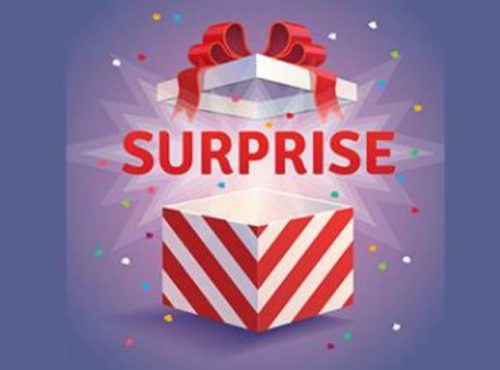According to a new study, uncertain rewards motivate us to make repeat purchases. In other words, when there are uncertain rewards, consumers buy the same thing again. A team of researchers was surprised to find what would make consumers buy things not just once, but many times.
Conventional wisdom tells us that people do not like uncertain rewards or gains. However, researchers found that uncertain rewards are extremely effective. Specifically, they are extremely effective in getting us to repeat behaviors.
It seems, after all, that consumers like surprises.
Professor Christopher Hsee and Professor Luxi Shen said:
“People repeat a task more for an uncertain incentive than for a certain incentive, even when the uncertain incentive is financially worse.”
Hsee is the Theodore O. Yntema Professor of Behavioral Science and Marketing at Chicago Booth Professor. Shen, a recent Booth graduate, is an Assistant Professor of Marketing at the Chinese University of Hong Kong.
The research team also included Joachim Talloen, a Ph.D. candidate in the Department of Social and Decision Sciences at Carnegie Mellon University.
The researchers wrote about their study and findings in the Journal of Consumer Research (citation below).

Why do uncertain rewards motivate us
One reason uncertain rewards motivate us to make repeat purchases is the psychological boost we can get. Specifically, the boost we get when we move from the unpleasant state of uncertainty to the satisfaction of certainty resolution.
WeChat Pay, for example, a leading mobile payment app, is extremely popular. After tapping to pay, the WeChat Pay user sometimes gets a bonus of uncertain size. This strategy of uncertain rewards motivates users to pay with that specific app again and again.
The same thing happens with many consumer goods businesses. Blue Apron, a meal-kit delivery service, sends subscribers a box of mystery groceries each week.
Apple music subscribers get a list of new music. Pet owners get a box full of surprise doggy treats and toys each month from Bark Box. If you are a Birchbox customer, you receive boxes of makeup samples as well as skincare samples.
Keep it mysterious with uncertain rewards
Prof. Hsee said:
“These services all share one important feature. They keep the box mysterious and let their customers have fun opening the packages and discovering the products. The uncertainty keeps the customers coming back.”
The researchers performed four experiments in Chicago and Hong Kong. They found that uncertain rewards motivated consumers consistently.
They motivated consumers even more than certain rewards in both field and lab setting, and also in both small and large magnitudes.
Running club experiment
A Hong Kong running club told students that they could earn extra points by running or jogging. Speed walking could also earn them points. They had to do this during a fifteen-day event on a 400-meter outdoor track.
The students were split into two groups – let’s call them the ‘uncertain’ and ‘certain’ rewards groups.
– In the ‘uncertain rewards‘ group, each member would receive either three or five points after each lap.
– In the ‘certain rewards‘ group, they received five points after each lap.
Participants could then exchange their points at a local cafe for the equivalent in Hong Kong dollars.
As the authors had expected, the uncertain rewards students ran more laps than those in the certain rewards group. They ran more laps despite a promised inferior financial outcome.
The authors wrote:
“In other words, people literally ran ‘the extra mile’ (precisely, 1.61 more miles) for the uncertain incentive.”
Uncertain rewards great for marketers
For marketers who want existing customers to come back for more, this uncertain rewards phenomenon is great.
Prof. Shen adds:
“However, for the marketers whose solo goal is to recruit one-time customers, they should be cautious and not just mindlessly add uncertainty into their product design or pricing strategy.”
The uncertain rewards approach is only effective if the uncertainty is resolved immediately, the researchers wrote. Also, it is only effective if there is uncertainty resolution after, and not before, the consumer has engaged in repetitions.
Getting consumers to return for more
Marketers had already had success in getting consumers to come back for more. Coffee shops and grocery shops, for example, encourage customers to bring their own mugs and cloth bags respectively. In both cases, the sellers give them a small discount.
However, this study suggests that the strategy is more effective with uncertain rewards. In other words, if the coffee shop or grocery shop customers don’t know how much the discount will be.
The results of this study should be interesting for marketing professionals wanting to promote customer loyalty. Customer loyalty is an important feature of existing customers who repeatedly buy from the same seller.
Citation
“The Fun and Function of Uncertainty: Uncertain Incentives Reinforce Repetition Decisions,” Luxi Shen, Christopher K Hsee, and Joachim H Talloen. Journal of Consumer Research, ucy062, https://doi.org/10.1093/jcr/ucy062.
